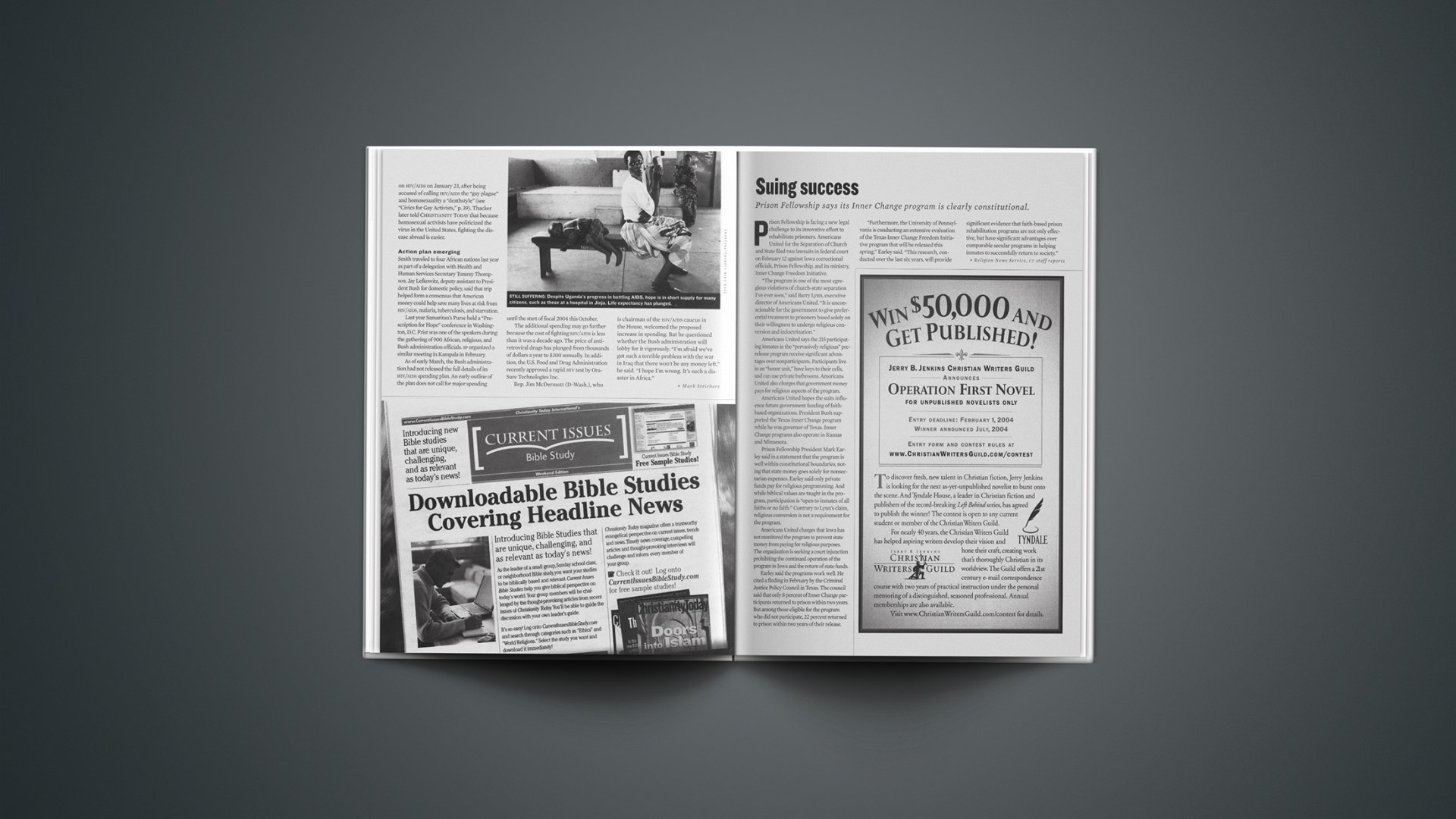Prison Fellowship is facing a new legal challenge to its innovative effort to rehabilitate prisoners. Americans United for the Separation of Church and State filed two lawsuits in federal court on February 12 against Iowa correctional officials, Prison Fellowship, and its ministry, Inner Change Freedom Initiative.
“The program is one of the most egregious violations of church-state separation I’ve ever seen,” said Barry Lynn, executive director of Americans United. “It is unconscionable for the government to give preferential treatment to prisoners based solely on their willingness to undergo religious conversion and indoctrination.”
Americans United says the 215 participating inmates in the “pervasively religious” prerelease program receive significant advantages over nonparticipants. Participants live in an “honor unit,” have keys to their cells, and can use private bathrooms. Americans United also charges that government money pays for religious aspects of the program.
Americans United hopes the suits influence future government funding of faith-based organizations. President Bush supported the Texas Inner Change program while he was governor of Texas. Inner Change programs also operate in Kansas and Minnesota.
Prison Fellowship President Mark Earley said in a statement that the program is well within constitutional boundaries, noting that state money goes solely for nonsectarian expenses. Earley said only private funds pay for religious programming. And while biblical values are taught in the program, participation is “open to inmates of all faiths or no faith.” Contrary to Lynn’s claim, religious conversion is not a requirement for the program.
Americans United charges that Iowa has not monitored the program to prevent state money from paying for religious purposes. The organization is seeking a court injunction prohibiting the continued operation of the program in Iowa and the return of state funds.
Earley said the programs work well. He cited a finding in February by the Criminal Justice Policy Council in Texas. The council said that only 8 percent of Inner Change participants returned to prison within two years. But among those eligible for the program who did not participate, 22 percent returned to prison within two years of their release.
“Furthermore, the University of Pennsylvania is conducting an extensive evaluation of the Texas Inner Change Freedom Initiative program that will be released this spring,” Earley said. “This research, conducted over the last six years, will provide significant evidence that faith-based prison rehabilitation programs are not only effective, but have significant advantages over comparable secular programs in helping inmates to successfully return to society.”
Copyright © 2003 Christianity Today. Click for reprint information.
Related Elsewhere
The official website for Prison Fellowship has more information on the group and a response to the suits brought by Americans United.
Americans United for the Separation of Church and State has posted a press release and the court complaints (pdf / Word).
Other news coverage includes:
Faith-based prison program challenged in court—ABP (Feb. 23, 2003)
Lawsuit: Prison Fellowship violates First Amendment—Baptist Press (Feb. 19, 2003)
Secularists target prison charity—The Washington Times (Feb. 18, 2003)
Group sues Iowa over religious prison program—Associated Press (Feb. 17, 2003)










